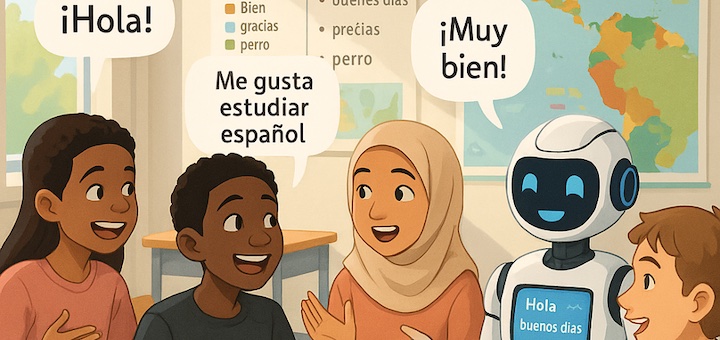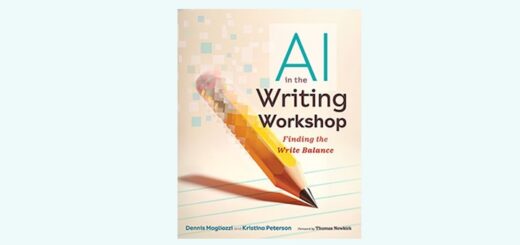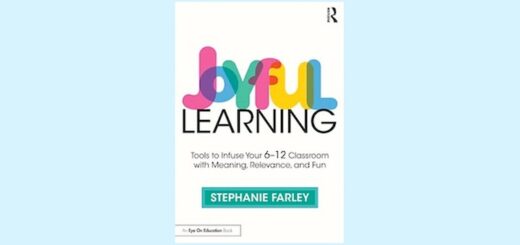Teaching and learning in grades 4-8
MiddleWeb is all about middle school & the middle grades — with a sharp focus on teaching and learning in grades 4-8. Click to learn about our work and what we have to offer, and find out how to get involved.
Dennis Magliozzi and Christina Peterson share what they learned when they introduced AI into their 9th grade writer’s workshop model. Their results show how including AI can deepen inquiry, provide meaningful feedback in real time, and expand learning, says Catherine Cottingham.
Once Harry Potter ruled the reading realm. Students lined up to devour each new physical 300+ page title. Then came the tech shift. The instant gratification of video games, apps and texting. The “it’s too long for kids” narrative. Kathie Palmieri has a plan to turn the clock back.
Teacher Scott Silver-Bonito is using an AI bot to create student study guides and build AI study spaces that are interactive, informative, and responsive, taking the burden off the teacher to continually create study materials and review every student response. See his example!
Using Technology in a Differentiated Classroom is a well-structured, research-backed guide for educators looking to increase efficiency as they integrate technology into their instructional practices, writes Melinda Stewart, who describes the book’s core strategies as “timeless.”
Educators can build children’s love of listening to stories and improve students’ reading skills by transforming teacher read-alouds into an instructional tool, writes literacy leader Laura Robb. Here she demonstrates how “think-alouds” make visible what good readers do.
Differentiating is a heavy lift for teachers and often gets pushed down our long to-do list. But we can’t call our most advanced students “learners” if they’re not actually advancing in class. Gifted education leader Kim Rensch shares four tips that simplify differentiation.
While it’s very tempting to put lesson planning, copier toner, and grading far above taking a dive into teacher health insurance, Dina Strasser is here to tell you that it is one of most important things you can do as an educator – worth at least two of your planning periods or more.
The Artificial Intelligence Playbook makes the case for why, along with how, we need to teach students to write purposeful AI prompts. In her review, middle school veteran Andi Jackson found the book to be grounded, practical, and deeply respectful of the teacher’s role.
Megan Kelly finds it pretty amazing that we can make small adjustments to our lessons and help our students’ brains focus and work more efficiently. In recent years she’s added a range of consolidation strategies to her classes to do just that. Here are four of her favorites.
One of the biggest challenges facing school leaders is pushback from teachers and staff that goes beyond the kind of disagreement that can be resolved through civil discourse and compromise. Consultants Ron Williamson and Barbara Blackburn share tips for managing toxic staff.










































